
GPnotebook Podcast
GPnotebook
GPnotebook Podcast
- 20 minutes 34 secondsEp 139 – Identification and treatment of perinatal mental health problems
Perinatal mental health (PNMH) problems affect one in five women and one in ten men. They can present in several ways, including depression and anxiety, but also post-traumatic stress disorder, adjustment disorder, obsessive-compulsive disorder and psychosis. In the third episode of the perinatal mental health series, Dr James Waldron and Dr Jenny Barnes (GP and Perinatal Mental Health Champion, Warwickshire) discuss what to do in clinical practice when PNMH issues are suspected. Prevention is better than cure, so it is worth taking steps to identify people at risk and offering support and treatment where necessary.
Access episode show notes containing key references and take-home points at:
Did you know? With GPnotebook Pro, you can earn CPD credits by tracking the podcast episodes you listen to. Learn more.
16 January 2025, 11:13 am - 9 minutes 29 secondsEp 138 – Morton's neuroma
Morton’s neuroma is a common condition that results in forefoot pain. It is a condition that can often be diagnosed in primary care and managed with simple changes in footwear and over-the-counter treatments. In this episode, Dr Kate Chesterman discusses the classic presentation of Morton’s neuroma, considers the need for any investigations, and updates us on appropriate self-care advice that can be given to patients.
Access episode show notes containing key references and take-home points at:
https://gpnotebook.com/en-GB/podcasts/orthopaedics/ep-138-mortons-neuroma.
Did you know? With GPnotebook Pro, you can earn CPD credits by tracking the podcast episodes you listen to. Learn more.
9 January 2025, 10:29 am - 22 minutes 22 secondsEp 137 – Beyond baby blues: supporting mental health in parents and partners
The 6–8-week postnatal check is a chance to better support mental health in new parents. In this second episode in a series on perinatal mental health, Dr James Waldron speaks with Dr Jenny Barnes – a GP in Warwickshire and perinatal mental health champion – about making the most of this critical opportunity. This episode discusses addressing mental health in both mothers and partners, the hidden toll of social media and understanding associated conditions such as obsessive-compulsive disorder and psychosis. It also offers practical insights for healthcare professionals to expand their approach and improve care for the whole family.
Access episode show notes containing key references and take-home points at:
Did you know? With GPnotebook Pro, you can earn CPD credits by tracking the podcast episodes you listen to. Learn more.
2 January 2025, 11:01 am - 15 minutes 47 secondsEp 136 – Quiz of the year 2024
In this episode, Dr Hannah Rosa invites you to join her in the first ever GPnotebook quiz of the year. The GPnotebook education team have been reflecting upon all that they have learnt over the past 12 months, in both their day-to-day clinical work and through delivering GPnotebook Study Group events. The quiz is based on the facts that the team have found most useful, interesting and sometimes surprising. So, have a pen and a piece of paper ready, and give it a go!
Access episode show notes containing key references and take-home points at:
https://gpnotebook.com/en-GB/podcasts/general-information/ep-136-quiz-of-the-year-2024.
Did you know? With GPnotebook Pro, you can earn CPD credits by tracking the podcast episodes you listen to. Learn more.
19 December 2024, 11:21 am - 14 minutes 27 secondsEp 135 – Tinnitus
Tinnitus can be frustrating for both patients and clinicians as there is some misinformation and misunderstanding about its aetiology and treatment options. For some people with tinnitus there is significant distress and a reduced quality of life that may not always be appreciated by healthcare professionals. Fortunately, most cases of tinnitus can be treated successfully, and there are a number of management techniques that can reduce its impact, including sound therapy, stress reduction and treatment of any underlying causes. In this episode, Dr Roger Henderson gives an overview of this common problem, with a reminder of how to evaluate it and when to refer a patient to secondary care.
Access episode show notes containing key references and take-home points at: https://gpnotebook.com/en-GB/podcasts/ear-nose-and-throat/ep-135-tinnitus.
Did you know? With GPnotebook Pro, you can earn CPD credits by tracking the podcast episodes you listen to. Learn more.
12 December 2024, 11:04 am - 16 minutes 47 secondsEp 134 – Prostate cancer
One in six UK males will be diagnosed with prostate cancer in their lifetime. In the UK prostate cancer is the most common male cancer, with over 55,000 new cases diagnosed every year. There has been much discussion in the media recently regarding whether men under the age of 50 should have access to prostate-specific antigen (PSA) testing, particularly if they have a strong family history of prostate cancer. In this episode, Dr Roger Henderson takes a look at prostate cancer, including guidance on screening, investigations and treatment.
Access episode show notes containing key references and take-home points at: https://gpnotebook.com/en-GB/podcasts/oncology/ep-134-prostate-cancer.
Did you know? With GPnotebook Pro, you can earn CPD credits by tracking the podcast episodes you listen to. Learn more.
5 December 2024, 1:43 pm - 14 minutes 34 seconds133 – Syphilis
Syphilis is a sexually transmitted infection caused by the bacterium Treponema pallidum. Known for its varied symptoms and potential to progress through multiple stages, syphilis can have serious health consequences if left untreated, affecting organs like the heart, brain and nerves. The infection spreads primarily through direct contact with syphilitic sores, which typically occur on the genital, anal or oral areas. Though syphilis was once thought to be largely under control, its prevalence has resurged in recent years, prompting renewed focus on prevention, early diagnosis and effective treatment. In this episode, Dr Roger Henderson discusses new syphilis guidelines issued by the British Association for Sexual Health and HIV and how these impact treatment in primary care.
Access episode show notes containing key references and take-home points at: https://gpnotebook.com/en-GB/podcasts/infectious-disease/ep-133-syphilis.
Did you know? With GPnotebook Pro, you can earn CPD credits by tracking the podcast episodes you listen to. Learn more.
28 November 2024, 10:39 am - 23 minutes 36 secondsEp 132 – Young people and alcohol
In this episode, Dr Hannah Rosa reflects upon the changing relationship between young people and alcohol. She examines the latest statistics before discussing the Chief Medical Officer for England’s guideline on alcohol consumption for children and young people. The focus then moves on to the harms that we now know that alcohol can cause to young people, especially to the developing brain, before finishing with emphasising the role that professionals in primary care play in supporting these young people and their families.
Access episode show notes containing key references and take-home points at: https://gpnotebook.com/en-GB/podcasts/general-practice/ep-132-young-people-and-alcohol
Did you know? With GPnotebook Pro, you can earn CPD credits by tracking the podcast episodes you listen to. Learn more.
21 November 2024, 9:07 am - 25 minutes 17 secondsEp 131 – Perinatal mental health: awareness, risks and impacts
Perinatal mental health (PNMH) issues refer to the period from the point of conception to a child’s first birthday. It encompasses several different mental health conditions and components far beyond the traditional understanding of post-natal depression and has an important impact on families and society. In part, the huge burden and associated cost is driven by how common PNMH problems are for both men and women. PNMH issues are more common than any physical health problem in pregnancy, so there is a need for GPs to look for and manage them to ensure the best outcomes for families and children. In this episode, Dr James Waldron welcomes Dr Jenny Barnes (GP, Warwickshire) to discuss PNMH problems and help raise awareness of the risks and impact, as well as simple ideas to support families in clinical practice.
Access episode show notes containing key references and take-home points at: https://gpnotebook.com/en-GB/podcasts/mental-health/ep-131-perinatal-mental-health-awareness-risks-and-impacts.
Did you know? With GPnotebook Pro, you can earn CPD credits by tracking the podcast episodes you listen to. Learn more.
14 November 2024, 10:47 am - 12 minutes 52 secondsEp 130 – Croup
Croup is a respiratory condition typically affecting children, characterised by a distinctive barking cough, hoarseness and difficulty breathing. Caused primarily by viral infections, especially the parainfluenza virus, it inflames the larynx, trachea and bronchi, leading to swelling and obstruction in the airway. Croup symptoms often worsen at night and can be triggered by environmental factors such as cold air. Treatment ranges from home remedies like humidified air and hydration to medical interventions, such as corticosteroids or nebulised epinephrine, depending on the severity of the condition. While most cases resolve within a few days, severe instances can lead to hospitalisation. In this episode, Dr Roger Henderson looks at how best to diagnose it, whether scoring systems are useful, and principles of effective management – including when to consider hospital referral.
Access episode show notes containing key references and take-home points at: https://gpnotebook.com/en-GB/podcasts/respiratory-and-chest-medicine/ep-130-croup.
Did you know? With GPnotebook Pro, you can earn CPD credits by tracking the podcast episodes you listen to. Learn more.
7 November 2024, 10:47 am - 14 minutesEp 129 – Acute appendicitis
Acute appendicitis is a medical emergency characterised by the sudden onset of inflammation in the appendix. As one of the leading causes of abdominal pain that necessitates surgical intervention, appendicitis can occur at any age, though it is most common in adolescents and young adults. The condition is primarily caused by a blockage in the appendix, which leads to bacterial infection, swelling and increased pressure. If left untreated, acute appendicitis can progress to life-threatening complications such as perforation, peritonitis and sepsis. Due to the non-specific symptoms, particularly in the early stages, diagnosing appendicitis can be challenging. Prompt recognition and treatment, typically through surgical removal of the appendix, are critical to preventing complications and ensuring a swift recovery. In this episode, Dr Roger Henderson looks at the clinical presentation, diagnosis and management of acute appendicitis, highlighting its significance as a common yet potentially dangerous medical condition.
Access episode show notes containing key references and take-home points at: https://gpnotebook.com/en-GB/podcasts/gastroenterology/ep-129-acute-appendicitis.
Did you know? With GPnotebook Pro, you can earn CPD credits by tracking the podcast episodes you listen to. Learn more.
31 October 2024, 10:51 am - More Episodes? Get the App
Your feedback is valuable to us. Should you encounter any bugs, glitches, lack of functionality or other problems, please email us on [email protected] or join Moon.FM Telegram Group where you can talk directly to the dev team who are happy to answer any queries.
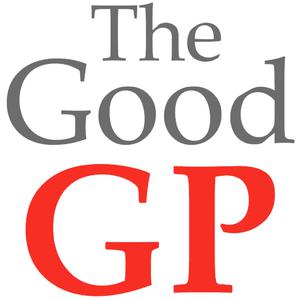 The Good GP
The Good GP
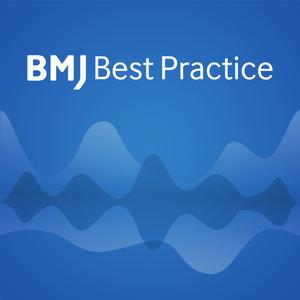 BMJ Best Practice Podcast
BMJ Best Practice Podcast
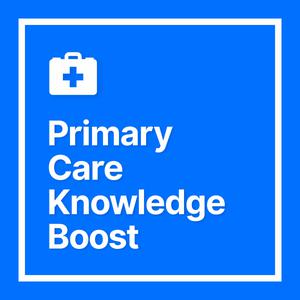 Primary Care Knowledge Boost
Primary Care Knowledge Boost
 You Are Not A Frog
You Are Not A Frog
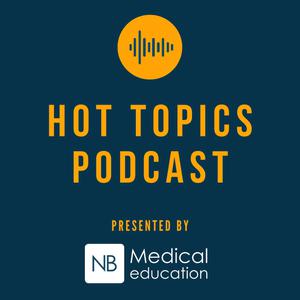 NB Hot Topics Podcast
NB Hot Topics Podcast
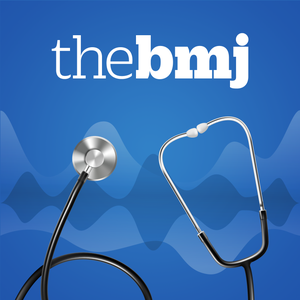 The BMJ Podcast
The BMJ Podcast